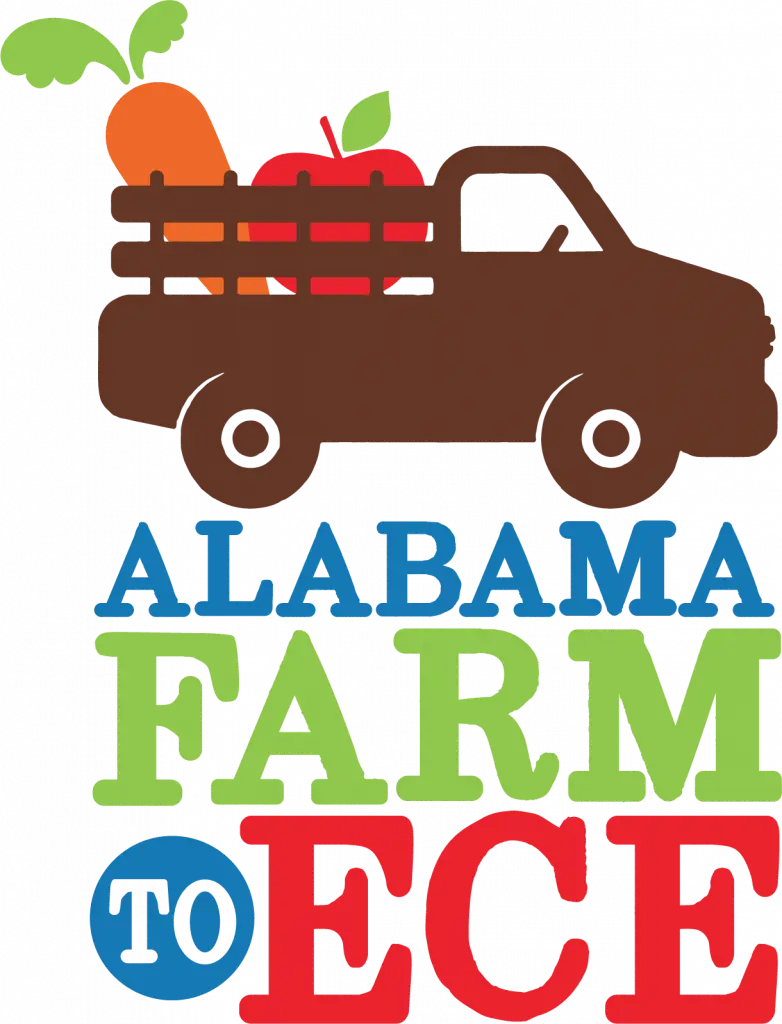This article has been written by Kaitlyn Barham, a Child Development Consultant at Childcare Resources, a partner of the Alabama Farm to ECE Coalition.
Meet Kaitlyn Barham, a Child Development Consultant I with over ten years of experience in early education. Kaitlyn is a dedicated professional with a passion for helping others provide quality early care. As the head of the Directors’ Network at Childcare Resources, Kaitlyn is responsible for providing guidance, training, and resources to individuals interested in opening childcare facilities. Her extensive knowledge of child development and education makes her an invaluable resource to those in the field.
Kaitlyn’s expertise has been recognized by many, including Baby Palooza Magazine, where she has been featured in publications related to the industry. She is a graduate of the University of Alabama, where she received her degree in Early Childhood Education. Her commitment to education extends beyond her work, as she is also a dedicated wife and mother of two girls.
Kaitlyn’s passion for helping children and families is evident in all that she does. Her years of experience and dedication to the field make her an excellent resource for anyone interested in starting a childcare business or looking to improve their current program.
Purchasing Local Foods
As a mom of two and early childhood educator, one of my number one goals has always been to prioritize the health of my daughters as well as the other children that I influence. One technique to doing so is guaranteeing a healthy diet and nutritious meals as often as possible. Though most local grocery suppliers offer some form of organic or healthy options for produce, two resources that I have always treasured are local fruit stands and farmer’s markets.
Since these resources deliver fresh and locally grown produce, not only do I ensure that my family has access to delectable and garden-fresh foods, but I am also able to put money back into the pockets of my neighbors and ultimately my local community. Shopping nearby also gives me the opportunity to pick from a wide range of produce to offer my family and ultimately expand everyone’s palate. Shopping with local farmers also certifies that the fruits and vegetables that I select have not been sitting on shelves for days or weeks. Locally grown produce is also less likely to be covered in pesticides and other harmful sprays that larger providers tend to use because of the size of crops.

I love to include my daughters in food preparation and cooking activities. My toddler is a huge fan of fruit, especially strawberries. One of our favorite things to do is visit our local farmer’s market for fresh fruit and bring it home to use in various recipes. By allowing my daughters to accompany me during the purchase, preparation, and consumption of these locally grown foods, I’m able to provide developmentally appropriate learning experiences and delicious treats as well.
For example, after arriving at the farmer’s market Kylie (age 2) identifies fruits and vegetables by name and we’ll play a little game to help with color recognition. Visiting the same tables and stands regularly provides interactions outside of her normal social circle and plenty of opportunities for continued social-emotional development. After choosing what to purchase, Khloe (age 6) helps me count out dollar bills as well as some coins to strengthen her mathematical skills and provides her with social interactions as well. Oftentimes, Khloe is curious about the foods and will ask vendors about how foods are grown. This cultivates an appreciation for healthy, whole foods and encourages her to eat a variety of fruits and vegetables.

Cooking as a Family
After we arrive home, we assess our inventory and decide on what to make. Most of the time, Kylie will just opt to eat some fresh fruit with my husband while Khloe assists me with completing an actual recipe (one of our favorites, fruit and yogurt parfaits, is below!). One of my joys as a mom is spending quality time with my family. Cooking experiences are a way to do just that while expanding cognitive growth as well.
Overall, shopping at a local farmers market is very beneficial for early childhood providers and parents alike. By supporting local farmers and introducing children to fresh, nutritious produce, you’re setting them up for a lifetime of healthy eating habits.
Resources
Discover the Health Benefits of Produce, EatRight.org, Academy of Nutrition and Dietetics
The Super Crew Guide to Cooking with Kids, SuperKids Nutrition, American Institute for Cancer Research

